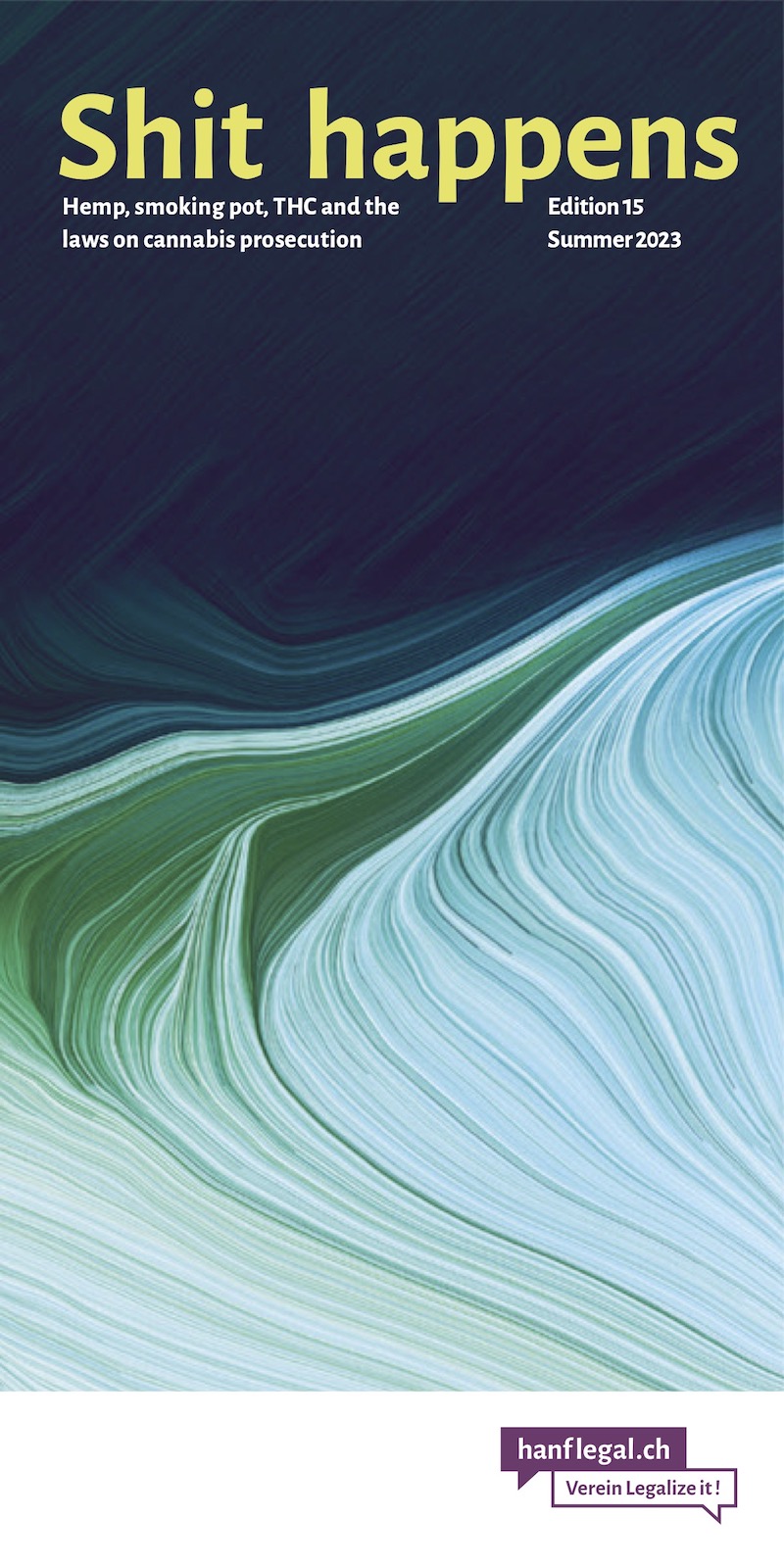- THC & Law:
Switzerland discusses and lags behind
While in our country maybe 2,000 people are allowed to participate in cannabis dispensaries, smoking pot is partially legal in the USA. Even if more and more are in favor of legalization: We should be careful that personal use becomes truly free.
Cannabis dispensing by lot?
The cities want to obtain a permit for the delivery trials in summer 2016 (NZZ of 5.2.2016, SRF of 12.2. 2016). However, the scale will now be significantly smaller than originally envisaged. Only 2,000 test subjects are to be gifted with cannabis. Thus, the main question of whether and how the black market could be dried up cannot really be answered.
Even if some people still talk about clubs, it now looks more like a participation in an ordinary scientific experiment, not like nice “Cannabis Social Clubs”…
The details are now being worked out. If the FOPH approves the trials, they might start in 2016/2017. The duration is planned to be four years. All other users will continue to be prosecuted. So these levies are at best a drop in the bucket.
Concrete legalizations are to be looked at: Some U.S. states have established functioning, large-scale cannabis production and distribution - whether clearly for recreational use, or for more strictly or loosely managed “medical marijuana.” Ten more state ballots are due in 2016.
But perhaps in Switzerland it simply takes the smallest of steps for a movement to take place at all. But providing 2,000 people, perhaps chosen by lot, with cannabis for four years (and then the project is over) - that's not a solution.
"Key Aspects of Cannabis Regulation."
This is the title of a paper written by the “National Working Group on Addiction Policy” NAS together with the “Conference of Cantonal Commissioners for Addiction Issues” KKBS and the “Municipal Conference of Commissioners for Addiction Issues” (July 2015). Heavens, these names…
Right at the beginning, the text massively underestimates cannabisprosecution. So it says: “…in Switzerland, the consumption of a minor amount of cannabis (max. 10 grams) by adult persons is punished with a fixed penalty of 100 Fr. Cannabis thus remains prohibited, but a criminal prosecution will not be included, except in exceptional cases.”
Unfortunately, this is more wish than reality. Even if 15,000 fixed penalties are now issued, 35,000 people per year are still reported for their cannabis use (so criminal proceedings after all - and not only in exceptional cases). In addition, there are cantonal differences in the (non-) application of fixed penalties. In addition, the hemp seed prosecutions has clearly shown: The repression is still massive. Otherwise, the statements are ok and comprehensible: The implementation of the repressive policy has not succeeded, the black market cannot be dried up by the police, most users have an unproblematic consumption and so on. Yes, we know that.
Then comes their desired goal - a graphic that summarizes their ideal. Cannabis legislation should be changed from total prohibition via harm reduction/decriminalization towards strict legal regulation, and at the same time alcohol and tobacco legislation should be adjusted from the status of today's relatively free commercial marketing via light market regulation also towards strict legal regulation. The theory behind this: Strict legal regulation should result in minimal harm to society (while an unregulated black market or a free legal market should each result in maximum harm).
But are these the only options? Strict regulation requires many regulations, which then have to be monitored and paid for again. Whether this makes sense and is proportionate seems doubtful. After all, a non-commercial association model for production and distribution of cannabis products is viewed positively.
But the legal possession of a few plants for one's own use - i.e. a self-responsible, libertarian variant - does not come up. We should always bring this aspect into the debate: Adults must be given the right to freely produce their own personal cannabis needs and thus be able to supply themselves.
The whole area of commerce can really be structured very differently, with less state paternalism and taxation or more. Therefore, the freedom of personal use should never be forgotten. It would be the only pledge of the THC-users - against a patronizing state (“to every stoner his social worker”) as well as against a strictly regulated market (which could soon be in the hands of a few specialized companies).
Support our work with a donation:
Bank transfer
Account number (IBAN):
CH02 0900 0000 8709 1354 3
Full account details
Or scan this QR code with your eBanking App (ZKB, Revolut, Postfinance, …):

Or open/share the QR code as PDF file with your eBanking App.
Credit card
Donate via credit card
Verein Legalize it!
Quellenstrasse 25
8005 Zürich
Threema ID 7NH65RBY
Don’t miss anything! Follow us on social media:
